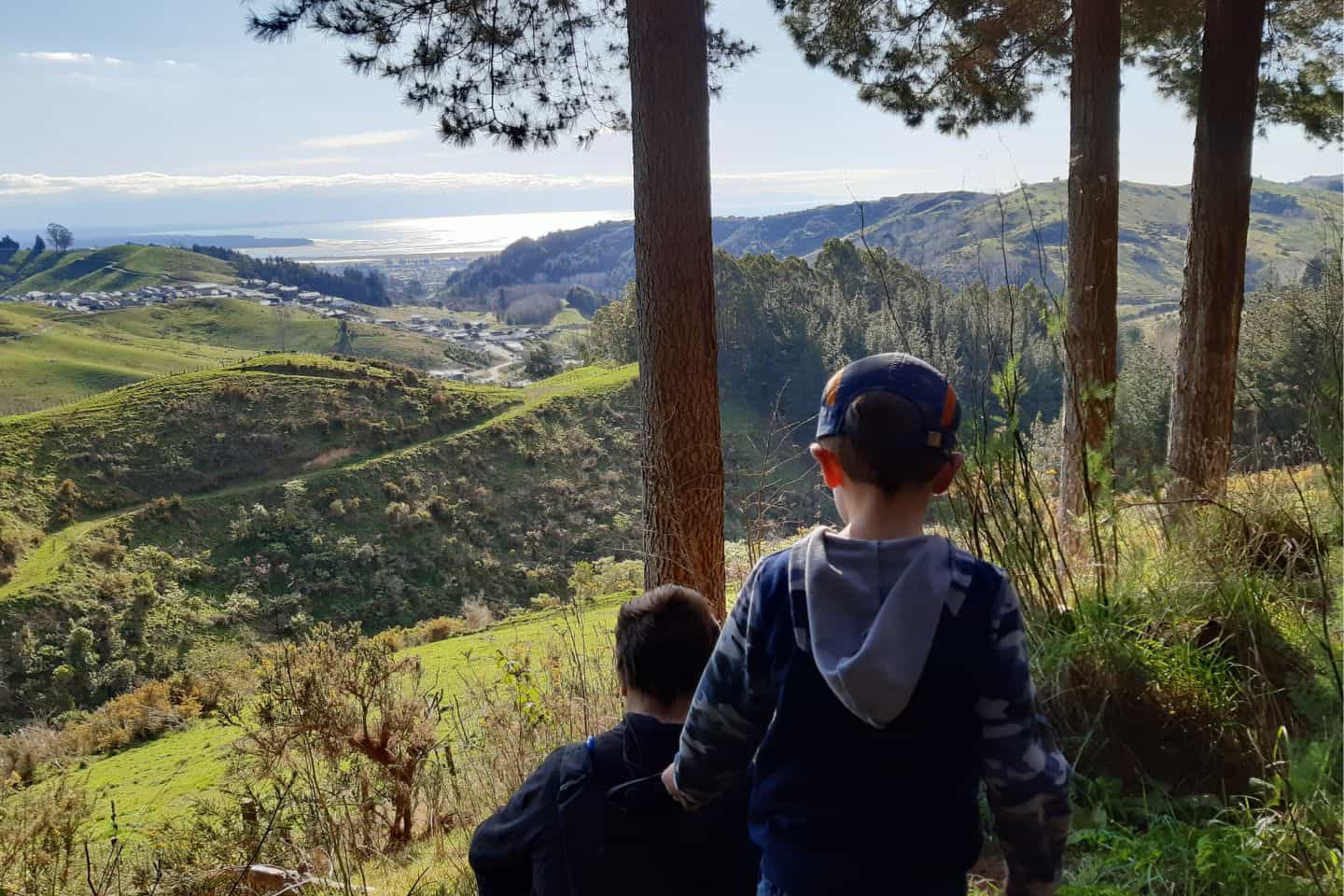
Many travelers who visit the spectacular country of New Zealand ask themselves the same question: how could I move here? With its natural beauty, endless opportunities for outdoor recreation, and high quality of life, it’s no wonder that New Zealand steals the hearts of its visitors.
One US military retiree was no exception, and immediately after completing 20 years of service, he moved to New Zealand with his wife and their two young children. They love the relaxed lifestyle in this small country and want to become permanent New Zealand residents.
As part of our Veterans Living Overseas Interview Series, here is our detailed and candid Q&A with this military retiree, who uses the pen name “Grumpus Maximus” (GM) on his blog, The Golden Albatross. Learn how his family found a way to move to New Zealand from the U.S., what their life is like as expats, and what they have planned for the future!
Contents (click to expand)
Why did you move overseas after military retirement, and how did you choose New Zealand?
We were living in Hawaii, my last military duty station, when my wife and I visited New Zealand in September 2018 and fell in love with the country. As we traveled around, we asked ourselves and each other if any reason prevented us from retiring here.
When we got back from that trip, I did some initial investigating about moving to NZ and the cost of living. I ran some numbers and simulations for our Financial Independence/Retire Early (FIRE) retirement budget, and the math seemed to work. So, we started investigating ways to emigrate.
At that point, I had already served 19 years in the military, so we knew retirement was close. By the time I reached my terminal leave point in October 2019, we were well into the process of emigrating.
We briefly thought about staying in Hawaii, but it proved too expensive for the FIRE budget that I had created. This was long before I knew how much I’d receive from the VA for disability, so I had to be conservative with my projections. My projections showed that our budget couldn’t support Hawaii’s cost of living and the parochial schools we wanted to send our kids to.
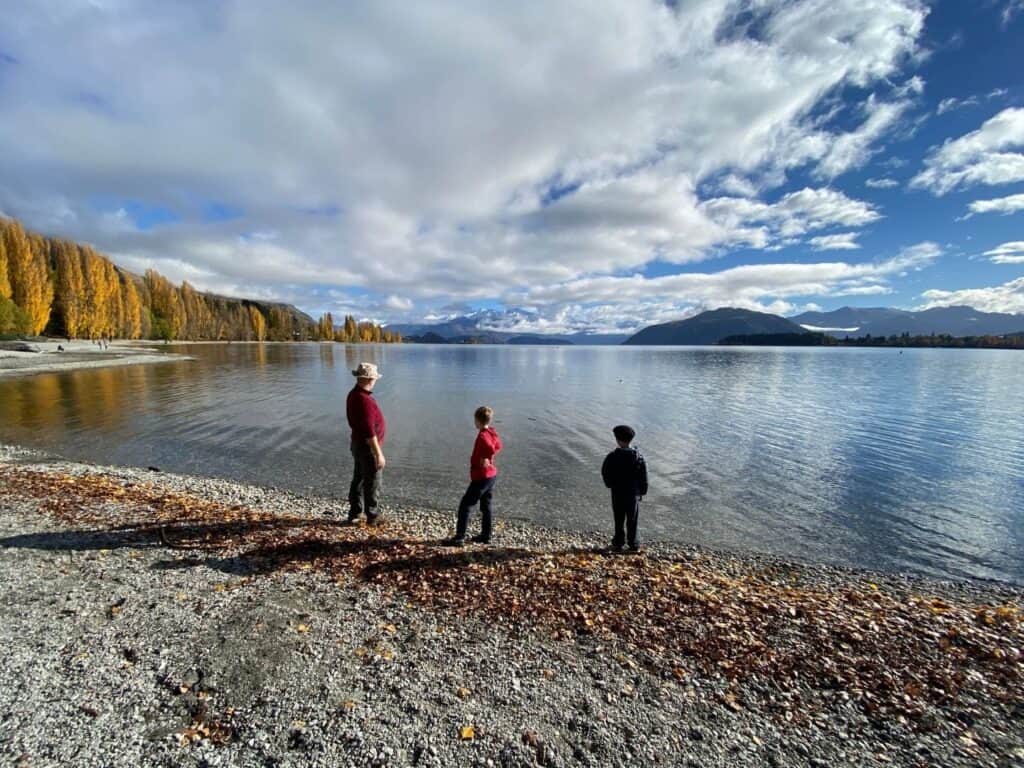
As a result, New Zealand, with its friendly people, great outdoors, lower cost of living, and favorable political environment, attracted us. Other countries like Portugal and Ireland also looked attractive, but we eliminated them for various reasons. Only NZ seemed to have the entire package that we were looking for.
Why did you choose the city of Nelson?
My wife and I aren’t big city people, so we weren’t drawn to the largest three cities in New Zealand: Auckland, Christchurch, or Wellington. We wanted someplace with mild weather patterns, plenty of outdoor activities, good schools, and a safe environment to raise our kids. Nelson fits all of those requirements.
Nelson is a small city by international standards but a mid-size city by NZ standards. Nelson sits on the north end of the South Island (“Top of the South” as it’s called). It has been labeled the sunniest place in New Zealand, and climate-wise, it’s just a little milder than San Diego.
Nelson has a lot to see and do. It has everything we need, like restaurants, a local polytechnic university, movie theaters, and other modern conveniences, but without the traffic and crime that comes with larger cities.
It’s also stunningly beautiful, with the ocean and mountains abutted against each other. There are also an infinite number of outdoor activities that one can partake in if they so choose.
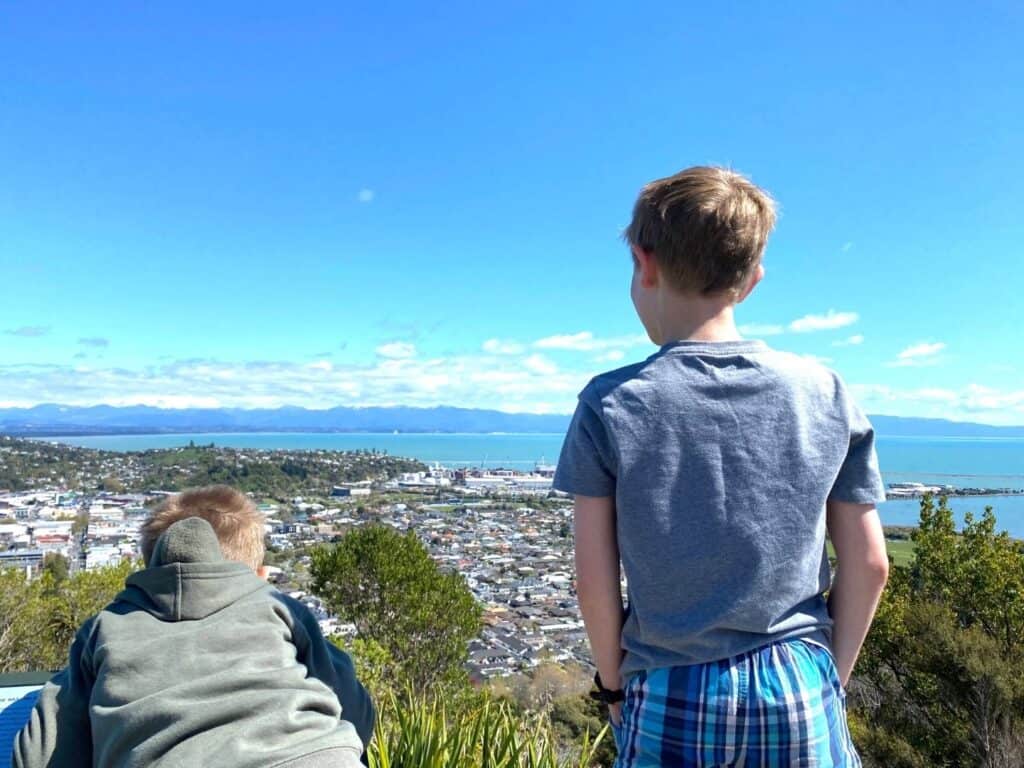
Other reasons for choosing Nelson relate to our visa requirements. We didn’t visit Nelson on our first NZ trip in 2018. We only “discovered” it on our second trip in April 2019, which was a trip that my wife and I took explicitly to scout locations.
At the beginning of that trip, we met with our immigration attorney in Auckland to discuss visa options. We agreed I would apply to a master’s or a PhD program, because only those degree programs – not a bachelor’s degree program — gave us the visa privileges we wanted.
Many of the universities and places on our original itinerary were no longer a fit for purpose. We thought Nelson would be the same, because I had not seen any master’s degrees on offer from the local polytech. However, we kept Nelson on the list because we had heard about how nice it was.
When we visited, it just so happened that the university had started a master’s program that year, and because of my work history, I could qualify for it. Talk about luck! I submitted my application that night.
How did you get the residence visa to live in New Zealand? Tell us about the application process.
We moved to NZ on a student visa for master’s students.
The visa process took about 4 months, start to finish. For other U.S, citizens, it may not even take that long. Our application was slowed by the number of places my wife and I had lived (you need a police certification for any country you lived in for more than 4 years).
| Related Reading: Visa Options for Veterans Moving Overseas
It was also slowed by some of our medical issues. New Zealand government wants to ensure that you won’t burden the national healthcare system here, and international students must obtain health insurance. That was built into the price of my tuition.
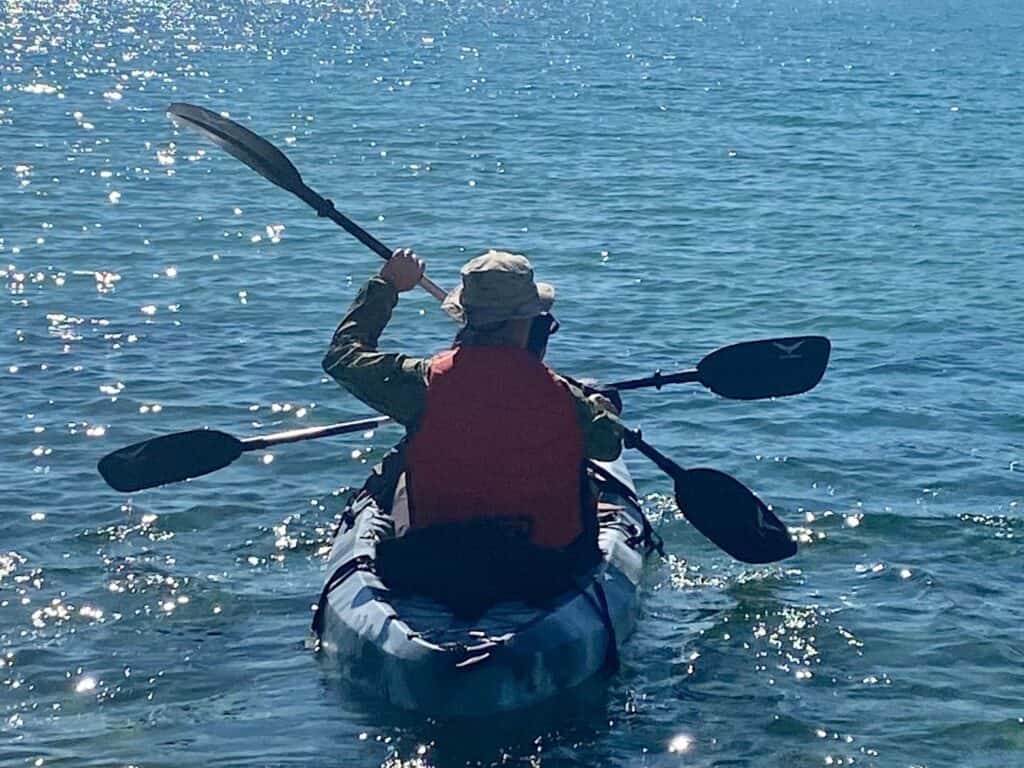
You also must visit what New Zealand calls a ”panel physician” in your current country of residence to verify you are in good health. Panel physicians are certified by Immigration New Zealand to screen emigres for health issues. Fortunately, Hawaii had a panel physician, but we had to pay out of pocket for their services, and it wasn’t cheap.
In fact, the entire immigration process wasn’t cheap. I believe all told, between visa processing fees, immigration attorney fees, and the medical screening, we spent roughly $5,500 just to get the student visas.
Now, we didn’t have to use an immigration attorney. However, as I found out during my wife’s United States immigration process, it was easier on our marriage to pay for the professional advice than research it on my own.
What benefits/restrictions come with your visa?
A student visa for master’s students allows dependent children to go to public schools as non-fee-paying domestic students. It also allowed my wife to work up to full-time.
According to the visa conditions, I could have worked part-time (20 hours a week), and many of my classmates (also foreign students) did. However, that was never on the cards for me. I was earning three paychecks every month between the GI Bill, VA disability, and my military pension.
| Related Reading: Moving to Ireland on a Student Visa
The cool thing about a master’s student visa in New Zealand is that it qualifies you for a 2- or 3-year open work visa if you successfully complete the program. An open work visa basically allows you to apply for any job opening, and you’re considered a domestic applicant.
This means companies don’t need to take extra steps to justify why they hired a non-resident worker. You still must apply for the open visa after you finish your program and pay more fees, but unless you committed an illegal act or suffered from some awful medical condition, your application will get accepted.
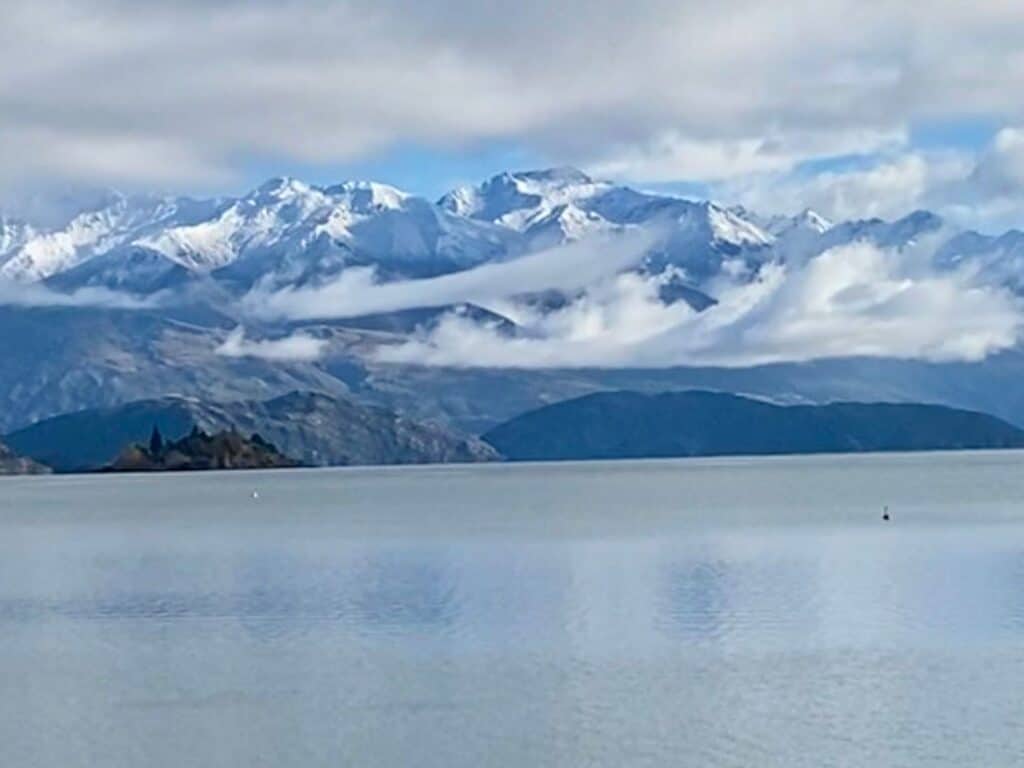
The open visa is valid for 2 years for master’s students who study in Auckland, and 3 years for master’s students in all other locations in NZ. PhD students are afforded similar, and possibly even better privileges, depending on their course of study.
Was it easy to arrange the use of your GI Bill overseas? Any lessons learned or tips for others doing it in the future?
Yes, it was easy. In fact, it was probably the easiest part of the multiple bureaucracies we navigated during our entire retirement and immigration process. I wrote this article on how to use the GI Bill overseas.
The main steps are as follows:
- Determine what overseas university you want to attend and program you want to study.
- Research whether or not the university and program you want to study has already been approved by the GI Bill authorities by using WEAMS Institution Search.
- Regardless of whether the university and program are already in WEAMS, you must apply to the program and get accepted.
- If the university and program is in the GI bill system, then all you have to do is send the VA your acceptance letter as part of your GI bill application.
- If the university and/or program are not already approved, then you must coordinate with the university’s international enrollments officers and have them apply to the VA. I repeat, university administrators must do this, not the prospective student.
- Once the university and program are approved in the VA’s system, submit the acceptance letter with your GI Bill application package.
Did the Department of Defense cover the cost of shipping your household goods to New Zealand as part of your final retirement move?
Yes, they did. For my retirement, DoD owed me one last move.
Since we were in Hawaii, that move could have been to my home of record or any other location in the continental 48. For overseas retirement moves, you pay the difference between what it would cost to ship household goods (HHG) back to the US and what it cost to ship them overseas. However, since you can pick any place in the US as the destination for comparing costs, I picked Maine.
So, officially my paperwork shows Maine as my retirement location, but I put my HHG shipment location as New Zealand. In the end, shipping to NZ was cheaper than shipping to Maine, so we never had to pay anything, except for the customs inspection on the way into NZ.
How did the kids feel about moving to New Zealand?
The move was a lot rougher on my 9-year-old than my 5-year-old. The 5-year-old was just happy to fly on a plane and go on a big adventure.
For the 9-year-old, this was his third transoceanic move and second school-age move. He had a great group of friends and classmates in Hawaii. However, we had been honest with him throughout the planning process.
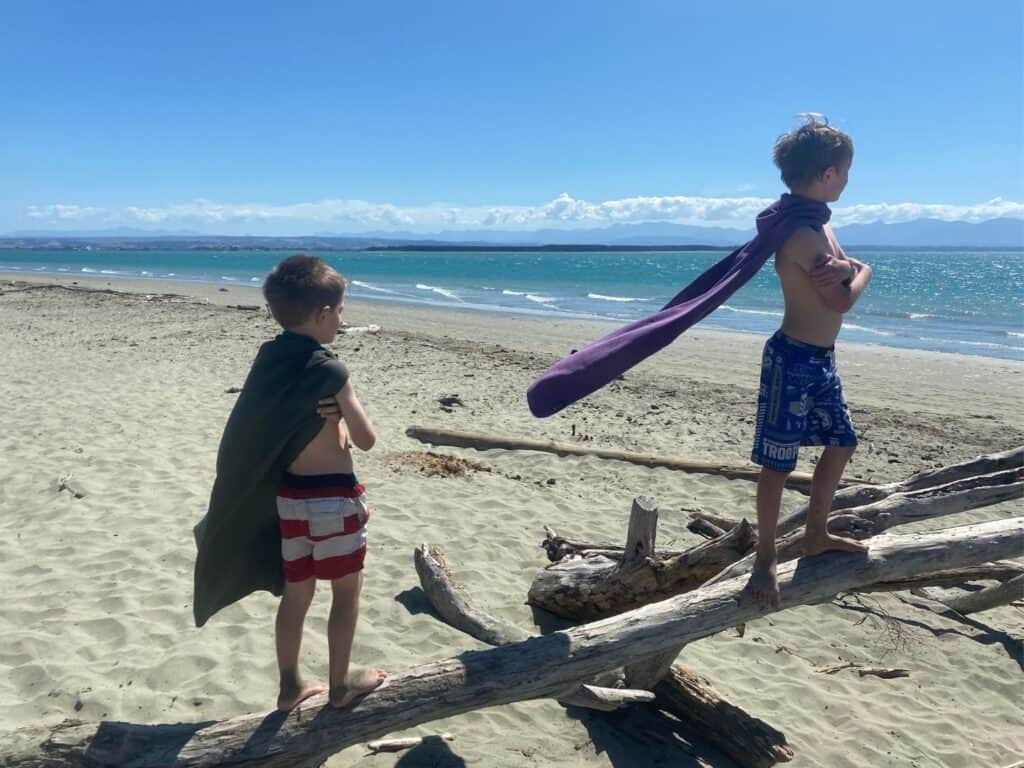
Hawaii was too expensive for us to stay without a parent working full-time, and since I was retiring to get away from the stress of military life and full-time work, I wasn’t going back to full-time employment. Thus, we couldn’t stay in Hawaii.
Still, it was rough going for the first few weeks in NZ. And there were a lot of Facetime calls to friends for the first 6 months. He’s totally adjusted now, though, which he mostly credits to his school and how much fun he has with his group of friends.
It doesn’t hurt that NZ schools are far less formal than US schools. For instance, shoes are optional most days, and most kids shed them at the door before going to class.
How does the cost of living in New Zealand compare to the US?
Comparing the cost of living is relative to the place(s) you might otherwise choose to live. For us, that was San Diego and Hawaii. San Diego was our long-time retirement destination, so it was the location that my original retirement budget was built for. Hawaii was the one other place in the US we might’ve stayed if we could have afforded it.
Nelson is cheaper to live in than both San Diego and Hawaii. That’s mainly because the rent is a lot more affordable than both of those other places. Nelsonians wouldn’t agree to that statement, and if I were getting paid in NZ dollars, I too, would disagree. But for someone who receives his retirement paychecks in USD, the rent is a lot cheaper.
Currently, we rent a modern 7-year-old home with 3.5 bedrooms that overlooks Nelson and the ocean for about U.S. $1,650/month. In Hawaii, we paid $3,750/month for a modern 4-bedroom house where you could only see the ocean from the second floor. Granted, the Hawaii house had more square footage, but not twice the amount, as the price implies.
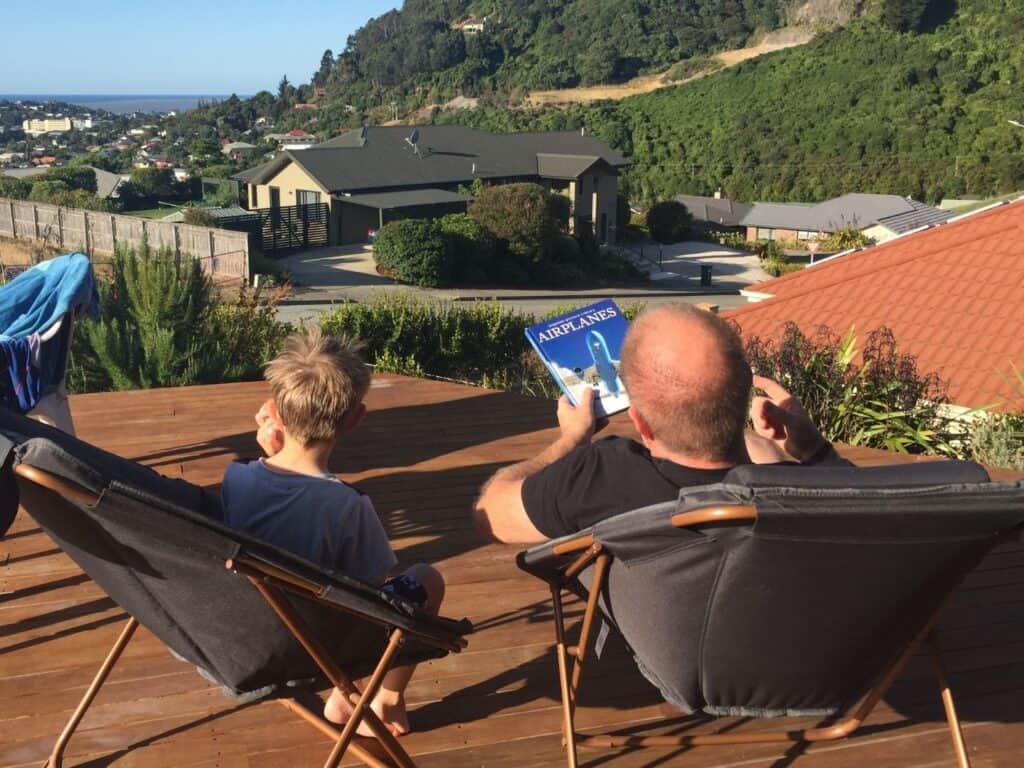
For dining out or grabbing a beer, the prices between San Diego and Nelson are mostly comparable. Hawaii is more expensive than both. I paid NZ $14 (~ US $10) for an imperial pint at the pub last night
Grocery/sundry prices are cheaper in San Diego than Nelson, but Nelson and Hawaii grocery/sundry prices are similar. For our first 11 months in NZ, 01 Feb through 31 Dec 2020, my family of four spent US $10,603 on groceries and sundries.
During the corresponding 11 months in 2019, we paid US $10,748 in Hawaii for the same spending category. Adjust those 2019 figures for inflation, and it equals US $10,942 for 2020.
My Hawaii total includes access to military commissaries and Costco, which are non-existent in Nelson.
Where do you get your health care? Do you have any kind of local insurance plan? Is the local medical care good?
We have a local General Practitioner that we use for routine medical care. It costs NZ $95 (~ US $65) per visit. We pay out of pocket and claim it back via the TRICARE Overseas Program (TOP), or the VA’s Foreign Medical Program (FMP) if it’s one of my rated disability conditions.
The kids are now covered under the national public healthcare system for most issues, based on the fact that we have an open work visa. Depending on the issue, my wife and I also have access to the national healthcare system.
That said, many Kiwis have private healthcare insurance because the national healthcare system is overworked and understaffed. We’ve opted for the private route as well a few times.
For instance, we got fed up with 8-month delays with getting our younger child screened for autism spectrum disorder and paid NZ $1,100 (~ US $771) out of pocket. TOP reimbursed for about 2/3 of that cost.
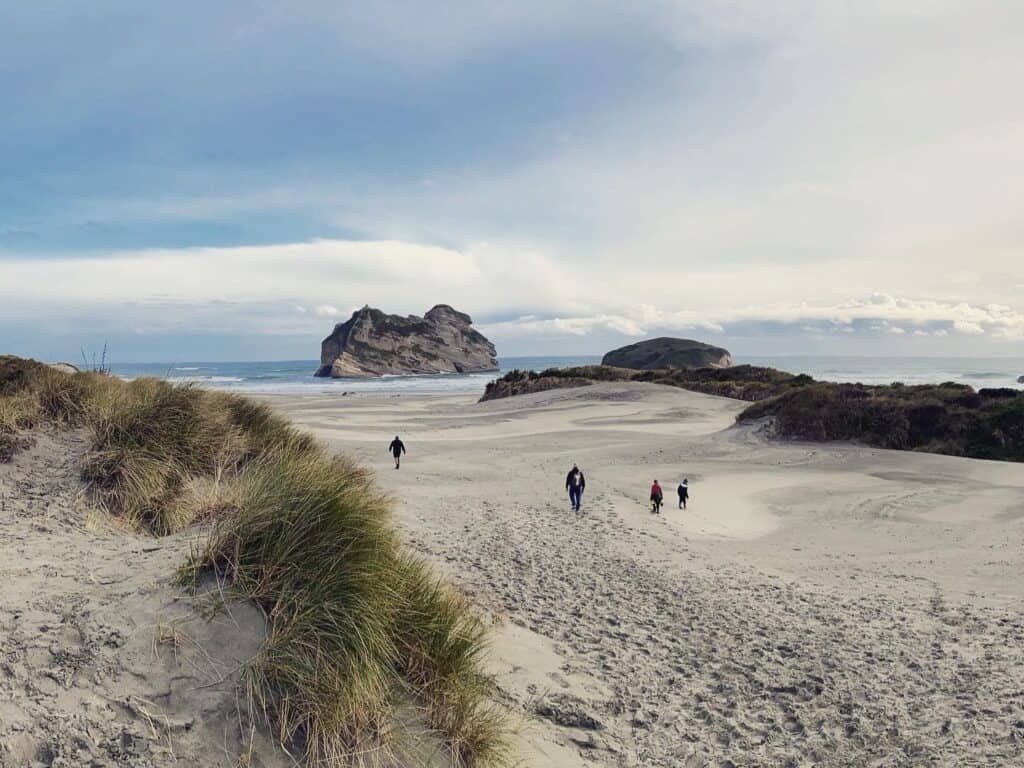
We’re lucky in Nelson regarding healthcare, because there’s a local, regional hospital and a decent community of private practice specialists.
For instance, I need surgery for my neck due to a ruptured disc. The VA’s FMP will cover it, because I left the service with this injury and the need for surgery. So, I’m going through a private practice. There’s a well-regarded specialist in town who does the surgery.
The same cannot be said for every regional town or city in New Zealand. In fact, if you live on the west coast of the South Island and require more than routine surgery, you probably need to go to Christchurch. I know this because an American doctor who practices on the west coast told me as much.
Does New Zealand tax your military retirement or other US income?
No, New Zealand does not tax my military retirement. Based on the Dual Tax Agreement (DTA) signed by NZ and the US, NZ does not tax government pensions of US citizens. My DoD pension is taxed federally in the US, and my VA disability is not taxed by either country.
Conversely, any income from working in NZ is taxed by NZ but not the US. For example, my wife’s income from her teaching assistant’s job is taxed by NZ Inland Revenue (their version of the IRS).
The tax situation for a US citizen living in New Zealand is a lot more complicated than simply who taxes your pension when you take into consideration investments and retirement accounts in the US.
Consult a CPA on both ends of any international move you’re contemplating! It’s money well-spent, because it will keep you from making an egregious tax mistake.
Is there anything you wish you had known or done differently prior to moving abroad?
I’ve come to believe in the idea of the gap year for people retiring from the U.S. military. That especially holds true for people from my year group, who spent so much of their military career in a technical state of war.
I would have benefitted immensely from taking a year off to completely decompress and avoiding making big life decisions. As it was, I started terminal leave in October 2019 and immediately signed a book deal to publish my first book.
In between working on that, I put the finishing touches on our NZ move plans and all the required paperwork. I also continued to sort out my medical issues.
Then, in late January 2020 we packed up the house, sold the stuff we weren’t taking, said goodbye to our Hawaii friends, and hopped on an airplane to NZ. By February, I had started my master’s program and spent the next 15 months studying full-time.
There wasn’t much downtime, and instead of decompressing, I replaced the stress from my military career with the stress of obtaining an advanced degree.
Furthermore, my family’s immigration status hung on my successful completion of my master’s course. Not to mention a worldwide pandemic going on while all this took place.
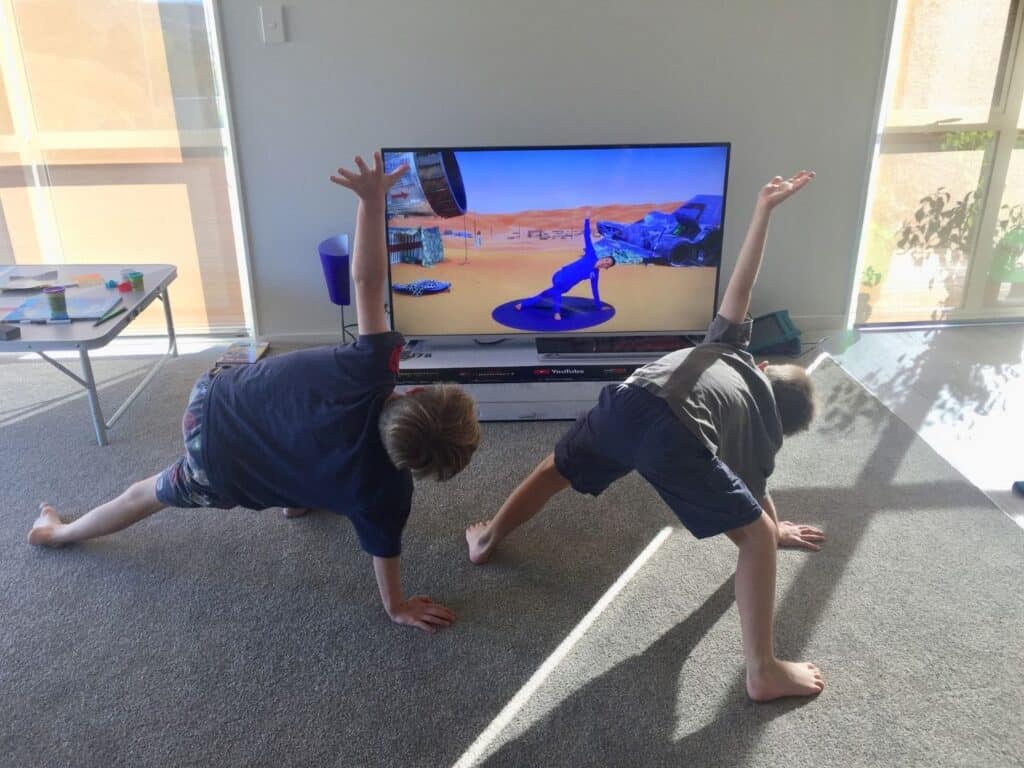
So, yeah, I think a gap year would’ve served me well.
In hindsight, given the number of medical issues I was dealing with, we could’ve (possibly should’ve) waited to determine my VA disability before moving. I ended up with a 100% permanently disabled rating, but only got the final adjudication in March 2020, after we moved.
That extra income could have changed the math for us in Hawaii to a significant degree. It might have made it possible to stay without working full-time.
Also, I need a lot of medical support because of the injuries that led to that 100% rating, which, as discussed, includes surgery. All of that would have been easier to coordinate in Hawaii.
Tell us about life in New Zealand! What does an average week look like?
An average week is centered around the kids’ schedule and is similar to life in the US.
My wife drops the kids off at school, and I pick them up. In between, we grocery shop, tend our garden, do house chores, and exercise.
My wife is excellent about exercising, both indoors and outdoors, and takes regular advantage of the available hiking trails all around us. I spend a lot of time in the gym, since I need to focus on specific areas for strength and rehabilitation.
I also spend a lot of time writing and working on long-term projects like submitting TRICARE claims!
Every now and then, I’ll hop on my electric bike to run errands or meet up with a friend. Nelson is super bike-friendly, both in the city for commuting and up in the hills for mountain biking fun. In the summer months, I also take my kayak out occasionally to exercise on the water.
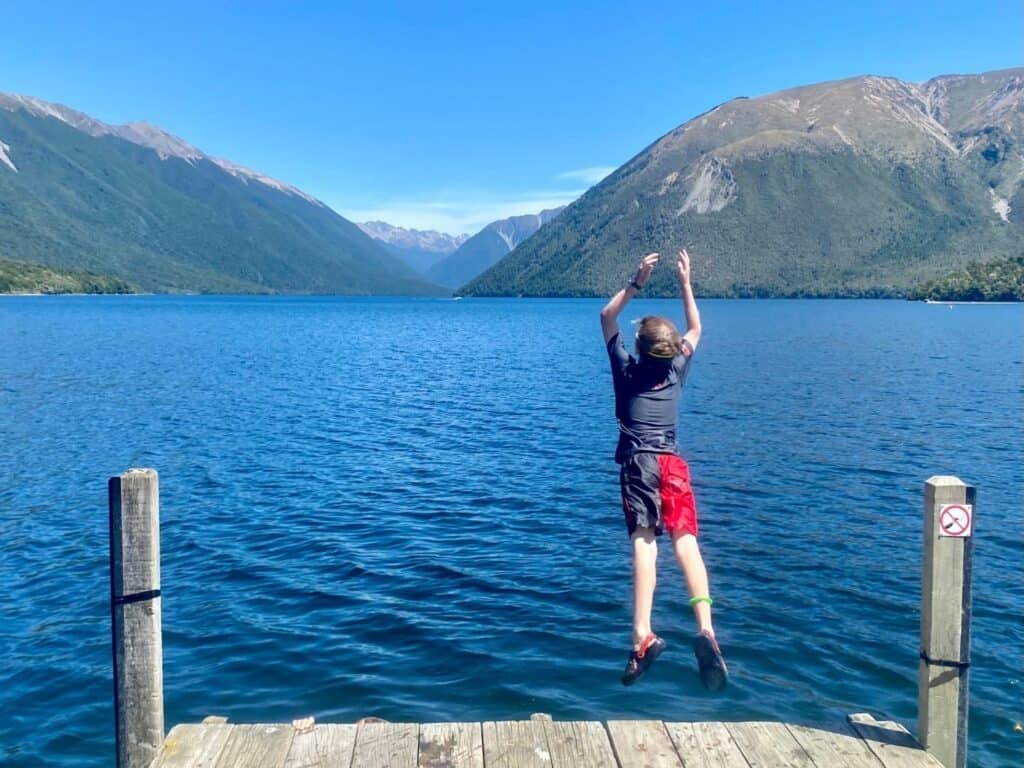
Afterschool hours and weekends are often dedicated to kids’ sports. The weather in Nelson is so mild that it offers sports opportunities all year round.
As a result, I’ve found myself coaching my older child’s soccer teams and managing the equipment for his cricket team. I also caddy for and help manage my younger child at golf lessons. On the weekends, we typically try to throw a hike, bike ride, or kayak outing on the end of whatever sporting activity got us out in the first place.
Even though we’ve lived here for nearly 2 years, we’re still very much in tourist mode. So, on three-day weekends or school holidays, we typically go on a trekking trip or visit a part of New Zealand we haven’t seen yet. There are always places to go and things to see with such natural wonders as mountains, waterfalls, and hot springs.
There always seems to be something going on in our area. Nelson has a lot of shops, restaurants, and nightlife. Also, Nelson has a well-known Saturday farmer’s market that draws people from all over the Top of the South.
Although not as culturally diverse as places like Christchurch or Auckland, there are also festivals for various groups throughout the year. The Nelson, Tasman, and Marlborough districts (think of them as counties) produce some of New Zealand’s best wine and grow a lot of hops, so there are also wine and beer festivals.
Do you have many friends from the local population, or do you primarily socialize with other expats?
It turns out that even though Kiwis have a reputation for being friendly and welcoming, Nelson has a somewhat cliquey social scene. Proper born-and-raised Nelsonians tend to socialize amongst themselves. A good bit of that socialization seems centered around old money.
However, there are so many New Zealanders from other parts of the country that live here, and so many foreign immigrants from all over the world, that it’s easy to make friends who travel in different social circles. We met a lot of friends through our kids’ school and afterschool activities.
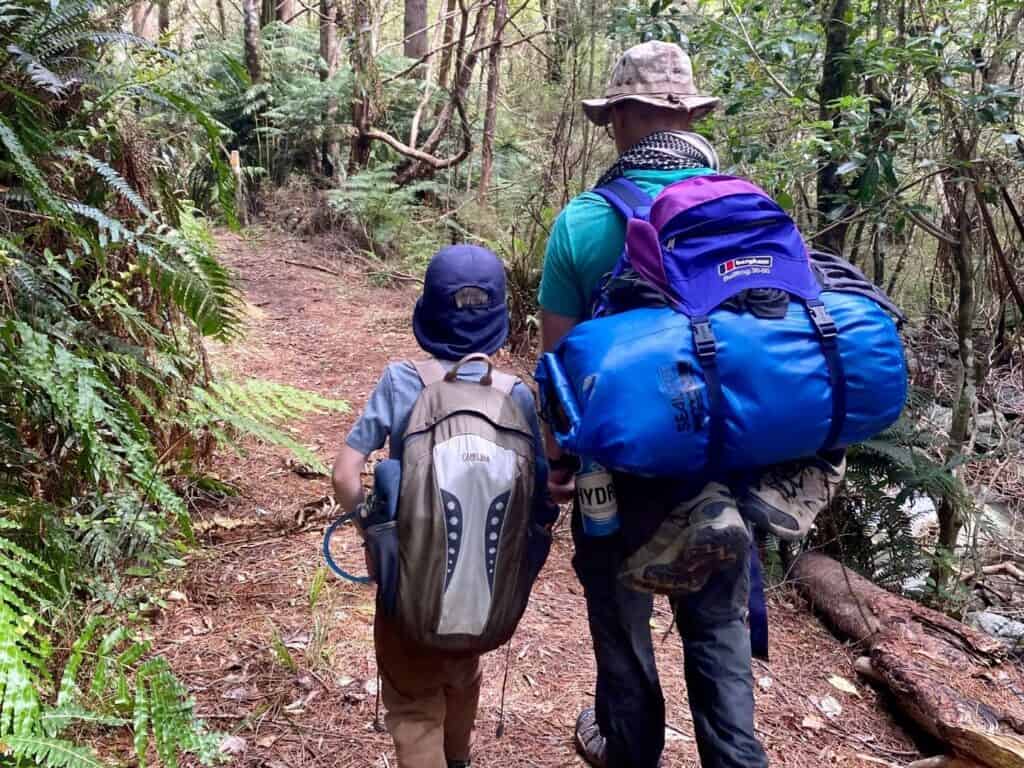
We also started camping and trekking (called “tramping” over here) with a couple other families during our kids’ school breaks. The kids have 1- to 2-week intervals between each school term (there are four per year), so it’s an excellent opportunity to enjoy the great outdoors.
My wife, who is British, also networked into a “Brits in Nelson” group that helped her establish contacts before we even moved to NZ. We’ve met a few families through that group and become close to one family in particular. My wife also volunteers at Red Cross and sings in a choir, which means her social circle is much larger than mine.
My social circle was large for the 15 months while I studied for my master’s degree. It included my classmates and instructors, several of whom went on to become friends. Now that we’ve completed the program, several of the former students have moved to the larger cities for better job opportunities.
Since the master’s program ended, I socialize a lot less in person. I’ll grab an occasional beer or coffee with friends every week or two or head to a movie with my movie buddies.
To increase my social interaction, I joined a Menzshed, composed of a bunch of retired guys, 20 years my senior, who like to work with tools and build stuff. I’ve always wanted to learn how to use tools properly, and it’s a good environment for me to learn.
Do you feel “accepted” in the local community? If not, why?
A lot of that depends on what you define as the local community and what social circles you travel in. As I wrote above, my wife and I aren’t looking to rub elbows with the rich or elite. So, I feel within our social circles we’ve been accepted just fine.
Furthermore, I haven’t run into much anti-American stigma. In fact, there are many more Americans living in Nelson than I would have guessed before moving here.
In my case, I think the biggest thing that people can’t comprehend is that I’m retired in my mid-40s. Everyone keeps on asking me what I’m going to do now that I’m finished with the master’s program, and it boggles their mind that I’m not looking for full-time work.
None of the various answers I provide like “I’m a stay-at-home dad” or “I run a blog and write books” seems to assuage that confusion either. So, my current answer is to tell people I’m waiting on neck surgery, and more importantly, the results, before I decide to return to full-time work.
What do you like about living in New Zealand?
Compared to the U.S. or the U.K., New Zealand is an exceptionally well-run country. If you research it, you’ll find that it’s one of the most democratically free, safest (it ranks #2 on the global peace index), prosperous, business-friendly, and happiest countries in the world. All of this is is plainly on display to us daily.
What are some of the challenges of expat life in New Zealand?
To date, my family’s biggest challenge in New Zealand has been the lack of permanence. As much as we’d like to stay here long-term, in a post-COVID economic environment, there are few paths to permanent residency that don’t include working full-time.
Furthermore, due to my work history and current master’s degree, it’s looking increasingly like that full-time worker is me. Without international tourism, the likelihood that my wife can find a job that meets permanent residence requirements is slim, since tourism is where her expertise lies. As a FIRE adherent and someone with a lot of medical issues that might interfere with full-time work, that’s difficult for me to swallow.
Even if one of us did work full-time, the types of jobs my wife or I could land may not be the type that easily qualifies us for permanent residence.
There’s a long-term skills list that Immigration New Zealand runs that outlines all the professions the country is short of. Immigrants with those skills have a much easier time obtaining permanent residence. Neither mine nor my wife’s work history clearly maps to one of those professions.
There are alternatives, of course, like an investor visa. However, at the moment, we don’t have enough investment funds to qualify. Moreover, the retirement visa is designed for traditional retirees (i.e., 65 and above). We’re currently examining options for my wife to re-skill into early childhood development because it is on the long-term skills list.
Fortunately, we still have over 2 years on our current visa, but the clock is ticking. It weighs on us daily — mostly because we don’t want to rip the kids from their new life and make yet another international move.
Another reason permanent residence matters so much is because you can’t buy a house until you’re a permanent resident in New Zealand. So, much like we did in the military, we’re renting a home.
Of course, living within our income stream of two pensions checks means we don’t worry about making rent. However, we’re not building any equity by owning in what is currently a super-hot housing market.
Thirdly, under current COVID restrictions, we can’t travel in and out of NZ on our visas. So, if tragedy struck in the US or the UK, and one of us had to travel back to tend to our family’s affairs, we couldn’t get back into NZ upon return.
Conversely, permanent residents can make such emergency travel arrangements under COVID restrictions. That last part will hopefully change once COVID restrictions end.
Furthermore, the pandemic has prevented my wife and me from seeing our parents and the kids from seeing their grandparents for almost two years now. That’s been difficult. Our move here was predicated on the assumption we could travel to the UK or US as needed (or our relatives could travel here), but COVID nullified that assumption.
What advice would you give to anyone who is thinking of moving abroad?
- If you are contemplating moving right after military retirement, maybe take a gap year instead. Decompress, do some slow travel, but don’t make huge life decisions. Of course, you need to save enough money so you can afford that gap year!
- Plan well, but stay flexible. Have a backup plan when the first plan fails.
- If you plan on staying in your country of choice long-term, understand all potential primary and tertiary visa pathways, especially for your backup plan.
- Expect the immigration process to cost some money, and save accordingly. This isn’t just about processing fees, but buying the things you need to live but couldn’t bring with you, like cars, refrigerators, TV’s, and microwaves.
- Spend the money on CPAs who can help detangle the tax implications of moving abroad. It’s worth it in the end.
What are your longer-term plans? Do you intend to stay in New Zealand for the foreseeable future?
Our plan is to figure out a legal way to stay. New Zealand offers the lifestyle we always wanted and the best environment to raise our children. The only reason we wouldn’t stay is if we can’t obtain permanent residence.
Alternatively, we would probably have to leave if tragedy strikes a family member in the US or UK before the COVID restrictions end. Of course, staying long-term is predicated on the idea that the borders reopen to regular international travel at some point in 2022. If they don’t, then we need to make some tough decisions about alternate locations to live abroad.
Wondering what happened next? Grumpus published this update on his blog in January 2023!
* * *
If you are a member of the U.S. military community and would like to exchange advice, experiences, and information about living in a foreign country as a civilian, join Poppin’ Smoke’s Facebook group U.S. Military Retirees and Veterans Living Overseas.

Thank you – such a very informative article. New Zealand is my favorite place on earth. I’m so happy for you, and a bit envious!
Thank you so much! We also fell in love with NZ while vacationing there in 2017. You’ve given us a lot to think about!
We had the opportunity to live in Christchurch for 3 years from 2011 to 2014. My husband, a retired Navy Chaplain, was hired by a church there who sponsored us for a 3 year work visa. I was able to work as a Dental Hygienist after going through the NZ licensure requirements. Unfortunately we found out that the night before we flew there that they had just experienced the 2011 7.2 Earthquake in the city we were going to reside and work, Christchurch. We were quite conflicted about whether to go or not, but after realizing that we were literally “homeless” since we had sold our house, cars, given up our jobs and sent all of our belongings to NZ on a ship, we had no choice. Tim had a job awaiting him there and the people needed a pastor after the tragedy that had just occured. It was a wonderful experience, but we are thankful that we came back to the US since our adult children and the grandchildren live here. I can’t imagine living there under their strict Covid requirements. We still talk about whether we should have tried to stay, but at this present time are very thankful to live in the state of Florida with a great governor-Governor De Santis. America has a lot of the same type of beauty, but not in such a compact place as NZ.
I fell in love with New Zealand in 2007 after a three week drive-about with my retirement mentor. We drove around North Island then South from Picton, Nelson, West to the Glaciers, Queenstown, Aoraki/Mt Cook, Christchurch, Akaroa, Kaikoura, Hamner Springs, etc. It took another 7 years before I was able to return via Space A and snowboard at Mt Hutt and explore “the rest” of South Island. I’ve been part of 3 UGA study abroad programs there living in Doubtful Sound, QTown, Mt Cook, Kaikoura and Christchurch.
I am a retired RN…(24 years in USAF) however, would love to work as a lift operator/snowboard instructor in NZ winters or interpreter (Mandarin)for adventure companies if seasonal work is available. Other options: home exchange or home/pet sitting, Hostel manager, ditch digger, etc. in other words… would love to contribute instead of just “retire” there.
Enjoyed your article immensely! Thanks for the insight and information required to move there. Good luck with surgery/recovery and decreasing pandemica requirements!
Cheers,
Major Tom in Athens
Thank you for posting this! We were trying to figure out where to make our forever home after my husband retires and New Zealand is where we decided and this really helped seal the deal! Luckily we have time as they are doing what they need to care for their people at this time (the dreaded covid) but we are now even more excited to raise our kiddos there and have a much more clear idea on what that means.
Thank you so much for posting this. Your outline assuaged so many of my concerns about the logistics of retiring to NZ. I read this as a how-to guide and am incredibly thankful for the details and thoughts around practical situations such as taxes.
Very appreciative!